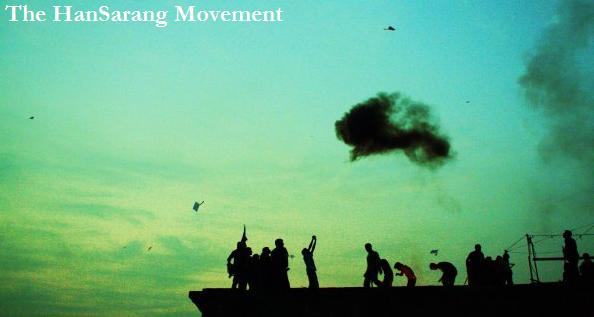Asian American History...if we took out "American" from that term, Asian History would have very little controversy since we are specifying a history that takes place in a different land. Obviously, taking out "Asian" would be deemed totally acceptable within our modern society as "American History" is a term that is most familiar. But "American History", from what we find in school textbooks and told by scholars, would simply be how the United States was formed from the perspective of the white man as he created the country into a shining beacon of freedom, democracy, and liberty for the rest of the world to look up to. Never mind the other non-white nationalities that immigrated into the country as the white man came first and whoever came first and is more prominent within a country has the greater power. It is uncomfortable for even the term "Asian American" to be used as we are familiar with "American" to be used mainly for white and black people. Considering the slavery that has taken place in America for several centuries, it is deemed politically offensive for blacks to simply be called "Africans" as their ancestors suffered to live in America and with the civil rights acts, it has been ingrained into the American mindset. But for every other race that has immigrated into this country, their hardships are deemed minor and thus are not consciously seen as Americans. It has become familiar to address Asians as only Asians even if they were born there and thus giving a significant word such as "history" to Asian Americans can be indeed seen as controversial.
Familiar does not mean we should take it with our heads down and our hands behind our backs. Familiar does not mean that we should simply accept because somebody told us that it was otherwise and that it should be taken for granted. With this said, we must be re-educated in the sense that that being an American truly means an individual who has come to this country to live a new life, regardless of where they came from. To become an American, it does not mean we need to assimilate our cultures, our identities, our names to a Euro-centric standard. That is not the true definition of being an American but only an outdated and narrow-minded conception of what an American is supposed to be. As Ronald Takaki would say, "We need to "re-vision" history to include Asians in the history of America, and to do so in a broad and comparative way". These words cannot be stressed enough how important it is to give Asian Americans the right to tell their complete history in all educational facilities in America. Though it may take a while for the history of Asian Americans to appear no larger than a margin in school textbooks, small steps such as this very course we are taking are significant to the process of creating a better and more open-minded future.
Friday, August 31, 2007
Subscribe to:
Post Comments (Atom)


5 comments:
Hear hear, Eddy! "Baby steps" made the wall of Jericho fall. Hopefully our baby seminar steps will make this class the first of a set of permanent ones focused on this facet of American history.
(by the way - I love your URL direct, "donotpokeme" lol)
I agree with what you have to say, but in the American History that I've studied I don't think it was as narrow minded as you make it seem. That might just be the "white man" inside of me speaking, but I know that terms like Angel Island were not new to me while reading Takaki's literature. Much growth is still needed and this is definitely a step forward like you said.
To be honest, I'd never heard of Angel Island until Takaki's introduction (granted, I am an English major, so my knowledge of American history is pretty spotty in general). I def agree with what you said about needing to incorporate the Asian American perspective into American history. If we want to truly get a complete picture of the American identity, we must include the experiences of ALL the groups that contributed to making this country what it is, no matter how uncomfortable or difficult it may be.
Hmmm, remember also to be kind of specific about what type of "white man" we're talking about... :) Northwestern/middle class/better-educated than most... The Irish and many Southeastern European immigrants had a hell of a time fitting in when they immigrated as well. Granted, they were able to assimilate faster and this was their advantage, but they were also treated unfairly as well.
and go-go breaking down the black-white binary! woo!
Post a Comment